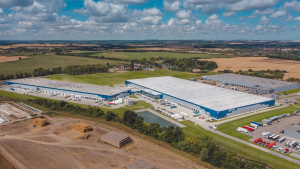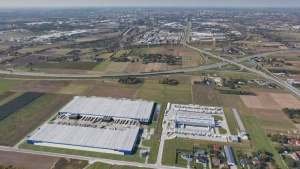
Ivan Lokere, CEO of Alinso Group, spoke to Property Forum about the company's expansion plans on the Romanian market and the development plans for its PWP Bucharest North project. He also outlined the sectors that drive demand for industrial spaces.
This interview was first published in Property Forum’s annual listing of "The 50 most influential people on Romania’s real estate market”.
Alinso Group recently expanded in Bucharest via the purchase of Metav Business Park. Why did you decide to close this transaction and how will the project support the overall business?
We know the country and its strengths. Alinso Group has a long-time experience with the upgrading and transformation of semi-industrial premises. Metav Business Park is one of the many projects that we analysed and many more will come.
Is Alinso Group looking to make additional purchases on the local market in the next period?
We are constantly looking to further expand in Romania, one of our key markets. We have the resources, the vision and the appetite!

Ivan Lokere
CEO
Alinso Group
What are some of the competitive advantages of the Bucharest market for industrial and logistics operations?
Good connectivity, strategic positioning geographically, access by highway from 3 directions (North, East & West), growing and significant domestic market, a strong economic network, entrepreneurial spirit and an experienced talent pool.
What is the status of PWP Bucharest North in terms of occupancy rates and development activity during 2022?
This year several new buildings will be developed in PWP Bucharest North. The occupancy rate is approx. 99% and has been above 98% since the beginning.
What is your outlook for the local industrial and logistics market considering external challenges such as the pandemic and Ukraine crisis?
The industrial and logistics market in Romania was not negatively affected by the pandemic and actually, on the contrary, benefited from a growth in demand. The crisis in Ukraine is, first of all, a humanitarian one. Apart from this, we have seen a positive impact on the demand of industrial and logistic space in the Bucharest area.
Which industries generate the biggest demand for spaces in Romania and do you forecast any changes from this perspective going forward?
Romania offers a good mix of logistics and industrial demand. Within logistics, there is strong growth in food and other retail including online retail. The industrial demand is also diverse and less dependent on the automotive sector than in the past. The request for new spaces is mainly generated by companies active in the distribution and logistics sectors, retail, FMCG, and e-commerce operators.
What are your expectations regarding Romania’s economy this year and how will it influence the development of the industrial sector?
The Romanian economy will grow this year above the EU average but it will be influenced by the increased prices of energy and gas supply. The shocks to the logistic chain will result in an increased demand for new industrial and logistics sites. The increased interest rates might, however, have a negative input on demand for residential.
Given the supply chain woes that impacted economies across the world in the past two years, can Romania become a relocation target for companies that want to bring production facilities closer to their key customers?
It is a good moment for Romania from an economic and strategic point of view. But in order to grasp its full potential, Romania has to invest more in infrastructure, education and the well-being of people.



